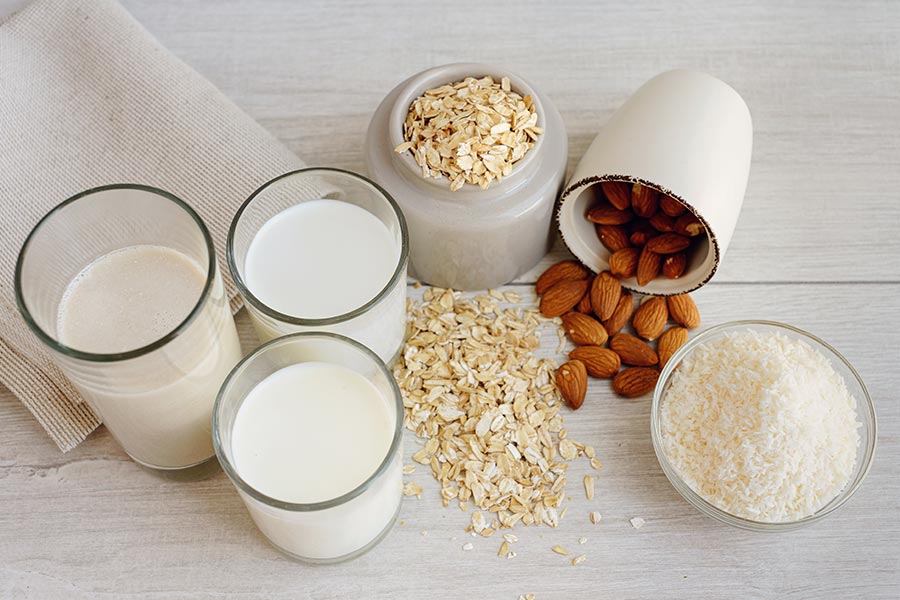With new trends hitting the health food headlines every day, a plant-based diet is the latest fad. The demand for plant-based foods and beverages have risen, and more and more restaurants are launching plant-based meals. A healthy plant-based diet centres around foods derived from plant sources. These include fruit, vegetables, grains, pulses, legumes, nuts and meat substitutes such as soy products.
Choosing a plant-based diet doesn’t mean you are going completely vegan or have to hate meat. It’s all about choosing more of your foods from plant sources. Learn here why eating a plant-based diet can help your overall health.
Boosts Your Immune System
A plant-based diet can shield your immune system from inflammations. Vegetarian diets contain antioxidants and phytochemicals that prevent inflammation and keep your cells healthy and your body in balance so that your immune system can function at its best.

A plant-based diet strengthens your immune system from germs and microorganisms. A healthy immune system reduces the risk for diseases like cancer because it identifies and attacks mutations in cells before they can progress to disease.
Reduces Chronic Disease Risk
Anti-inflammatory vegetables like ginger, garlic, turmeric etc can resolve inflammation in your body. The antioxidants in plants grab the free radicals that can harm your body and neutralise toxins from pollution, processed food, bacteria, viruses and more.
It’s important to eat plant-based food and avoid prolonged inflammation which can damage your body’s cells and tissue and in turn lead to cancer and other inflammatory diseases like arthritis. A low-fat vegan diet can improve symptoms of rheumatoid arthritis such as joint pain, stiffness, and swelling because it removes what triggers it.

Lowers Weight Gain
Plant-based diets can help you to lose weight because they are packed with fibre and makes you feel full. It’s good to have 40 grams of fibre a day, which is quite easy when you decide to have more vegetables, fruits, and whole grains. It can help you maintain a healthy weight and improve the health of your gut. It also enables you to absorb the nutrients from food.
Fibre can lower cholesterol and stabilise blood sugar and is great for good bowel management. A plant diet will lead to a healthy choice of foods naturally and you tend to remove foods that add weight gain.
Controls Diabetes
Plant-based diets are rich in various antioxidants such as polyphenols that inhibit glucose absorption and stimulate insulin secretion. It contains magnesium which promotes insulin sensitivity thereby improving sugar metabolism. They are also rich in cellulose and hemicellulose, which are responsible for maintaining the glycemic index of the meals and aid in improving postprandial blood sugar levels.
A plant diet also promotes the growth of probiotics. The fibre, found in fruits, vegetables and legumes are fermented by intestinal bacteria to produce short-chain fatty acids, which also improve sugar metabolism by increasing insulin sensitivity.

Lowers Blood Pressure
Consuming a plant-based diet is found to lower blood pressure. According to new studies, increasing healthy plant-based foods in your diet and limiting animal products can benefit your blood pressure and reduce your risk of heart attacks, strokes and cardiovascular disease.
Increased consumption of whole grains, vegetables, nuts and seeds, and fruit could avert millions of deaths every year. A single week of eating a total plant diet can help patients combat high blood pressure without medication. A vegan diet contains fewer additives and is typically less in sodium, which is likely to create its antihypertensive effect. The diet improves blood viscosity, and in turn, lower blood pressure.
Fights Cancer
The nutrients rich in plant-based foods ‑ including vitamins, minerals, phytochemicals and fibre ‑ have been proved to fight several types of cancer. Plants produce many phytochemicals that may protect cells from damage and lower cancer risk. For instance, eating 6 oz of whole-grain foods each day may decrease your colorectal cancer risk by 21%.

Researches have revealed that a diet high in red meat, processed meats and charred or smoked meats increase cancer risk. Plant-based diets have also been shown to prevent recurrence in cancer survivors. Make sure to fill two-thirds of your plate with plant-based meals and the remaining one-third with a lean protein like chicken or fish, or a plant protein like tofu or beans. A shift to a more plant-based diet could save your life.
